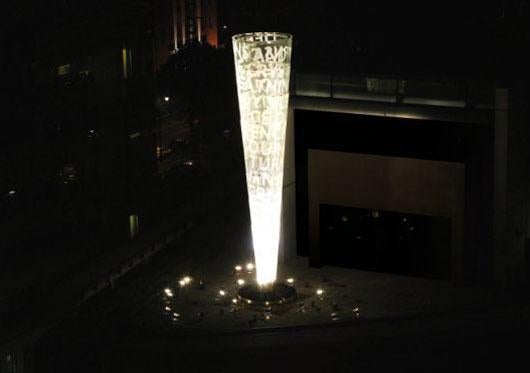
If you asked most journalists whether a story was worth their life they would say absolutely not. But then I have never met a journalist (and in that I include all varieties of news people) who goes out on a day’s work in a dangerous place expecting to die.
I am always struck by what is left of a person’s last few hours when I see bodies in mortuaries and back alleys and wrecked buildings and all the other places where people end up who have died violently. Small, even trivial thoughts can find their way past the overwhelming and hideous fact that their lives are over. What about their clothes? Did they think they were going to die when they put on their socks? And the knots in their shoelaces, tied by fingers that now are dead. What were they thinking when they were doing them up? Perhaps the day was already going badly. Was fear already pulling at their minds and their guts? Or did they have no idea what was coming?
The answer is that when the day began most of them didn’t expect to die. If as a journalist in dangerous place you worry that you are getting dressed for the last time every morning before you go to work then you are probably in the wrong business. You need to know the risks, and to take precautions, but to be calm about them too, and even to deny them. That cannot be done without believing that you will make it through the day, and that if you have some close calls you will be able to make jokes about them when you are having dinner.
You need to be able to deal with danger, to have had some training and done some planning if you are going to function in the realm of time and fear that James Fenton describes so brilliantly in the poem that was commissioned to go with the new memorial.
You have to believe that you will stay alive because you are being careful, or because your experience will see you through, and it helps too if you are young and feel indestructible and the sun is shining and you just know it couldn’t possibly happen to you. When journalists no longer feel at least some of that they tend to stop covering wars.
The chances are that it will be OK. Most journalists who work in wars don’t die, and don’t get wounded. But some do, and these days more people target journalists, when in the past the main problem was being in the wrong place at the wrong time. With so many risks out there, the unfortunate truth is that surviving in a war, even for the most experienced and best trained, requires a strong element of luck. And peoples’ luck runs out. Sometimes they do not have it at all. Journalists need to know that if they go to places where people are getting killed they could get killed too.
Every journalist who has made a habit of going to wars has a list of dead friends and colleagues, people who did the same stories in the same places until they went to work one day and were killed. The other night a photographer who covered many of the wars of the 1990s told me that about ten years ago he was one of six ushers at a wedding. All of them were in the news business.
Now only two of his fellow ushers are still alive. My list has more than a dozen names. I only include people who were friends or close colleagues. If I added the names of people who I knew only by sight the list would be longer. I had to do obituaries for some of them, and everyone who works in news knows how the caravan moves on to the next story. It is good that there is going to be a permanent memorial to our dead friends in the middle of London.
My friend and colleague Abed Takkoush had been a driver and fixer for the BBC in Lebanon for 25 years when he was killed by a shell fired by an Israeli tank crew on 23rd May 2000. With Malek Kanaan, our cameraman, I got out of Abed’s car a few minutes before the shell hit it. He stayed in there because he was on the phone to his son. The area did not seem dangerous, but it was. Abed did not expect to die that day. I could have been in the car with him, because I had been on the phone too. But my call ended as we parked, and his didn’t. That is the only reason why he is commemorated by the new sculpture, and I am not.
Email pged@pressgazette.co.uk to point out mistakes, provide story tips or send in a letter for publication on our "Letters Page" blog




